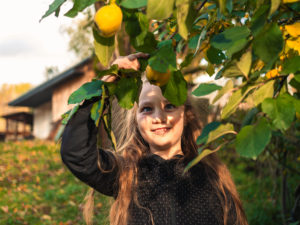In some people, insulin resistance can cause a darkened pigmentation to develop on
certain areas of the skin. This condition is called acanthosis nigricans. It is most commonly seen around the neck, the armpits, knees, or elbows. In children, parents may think acanthosis nigricans is dirt that doesn’t wash off the skin no matter how hard they scrub. Researchers don’t really understand why acanthosis develops in some people. Sometimes skin discoloration can be completely harmless, but it may also be a sign of insulin resistance.
Insulin resistance is often associated with obesity. If your child is overweight, there are many things that you and your child can do to achieve a healthy body weight.
If you think your child has insulin resistance or acanthosis nigricans, you should bring him or her in for a visit with their doctor because insulin resistance is often a precursor to pre-diabetes and type 2 diabetes. Your child may need some blood tests, such as a fasting insulin level, to try and determine if the acanthosis nigricans is related to insulin resistance. If so, you will want to consult a Registered Dietitian about the best possible food plan and lifestyle changes that may be helpful for your child. In some cases, medicine may be prescribed by your child’s doctor to help reduce the insulin resistance.
Having insulin resistance or acanthosis nigricans does not necessarily mean that your child will develop diabetes, but these conditions should be taken seriously. Lifestyle changes in diet and activity for the entire family are often the most important first steps in addressing these concerns.









